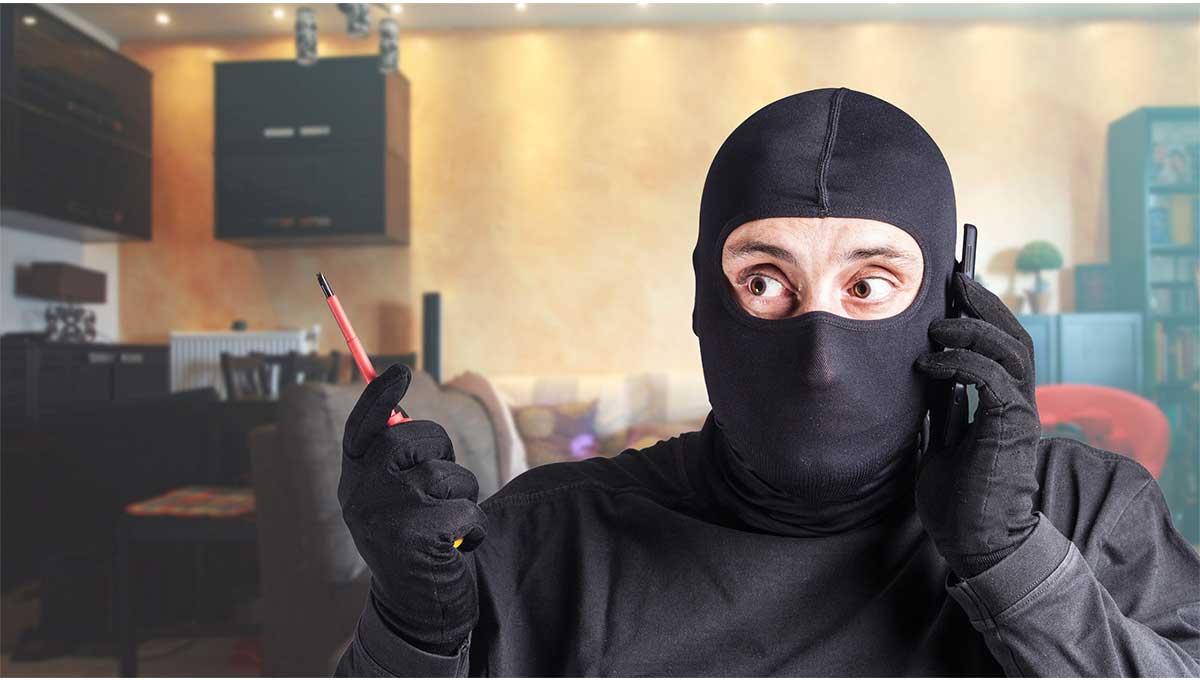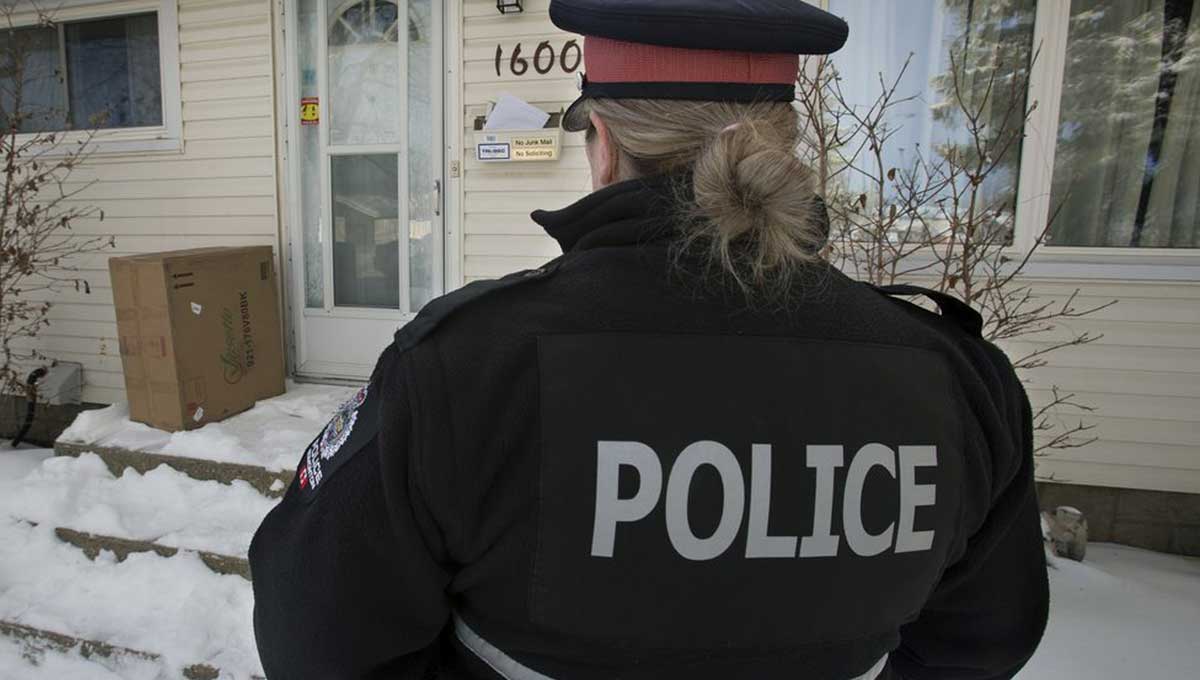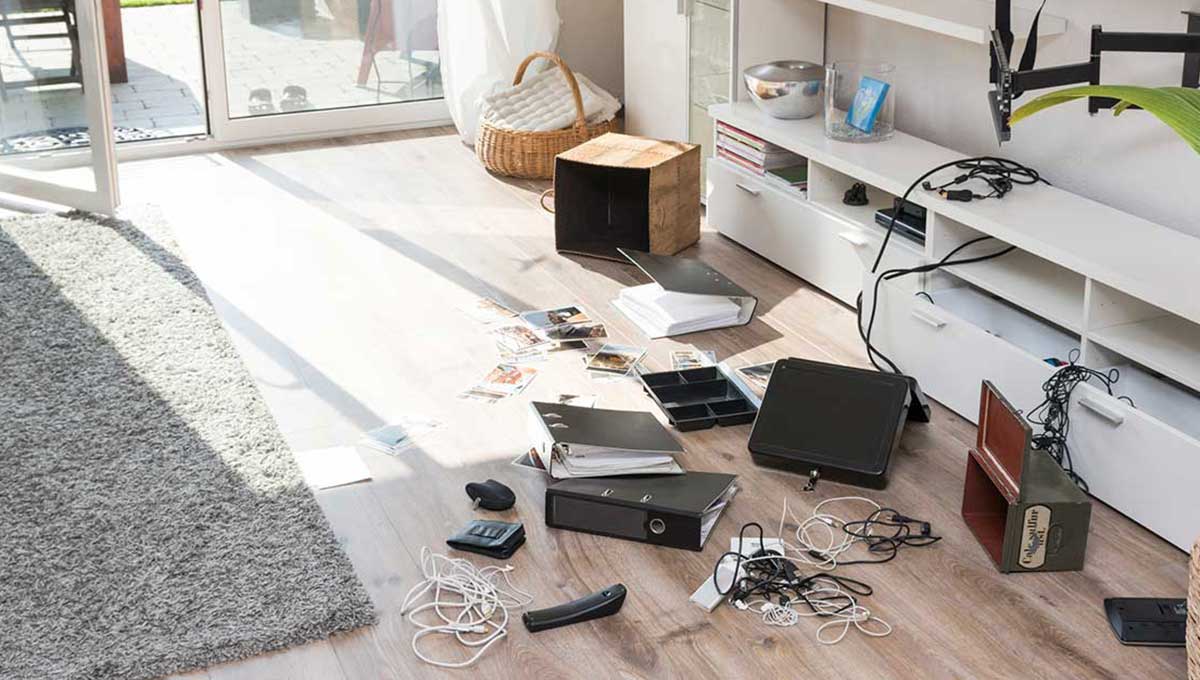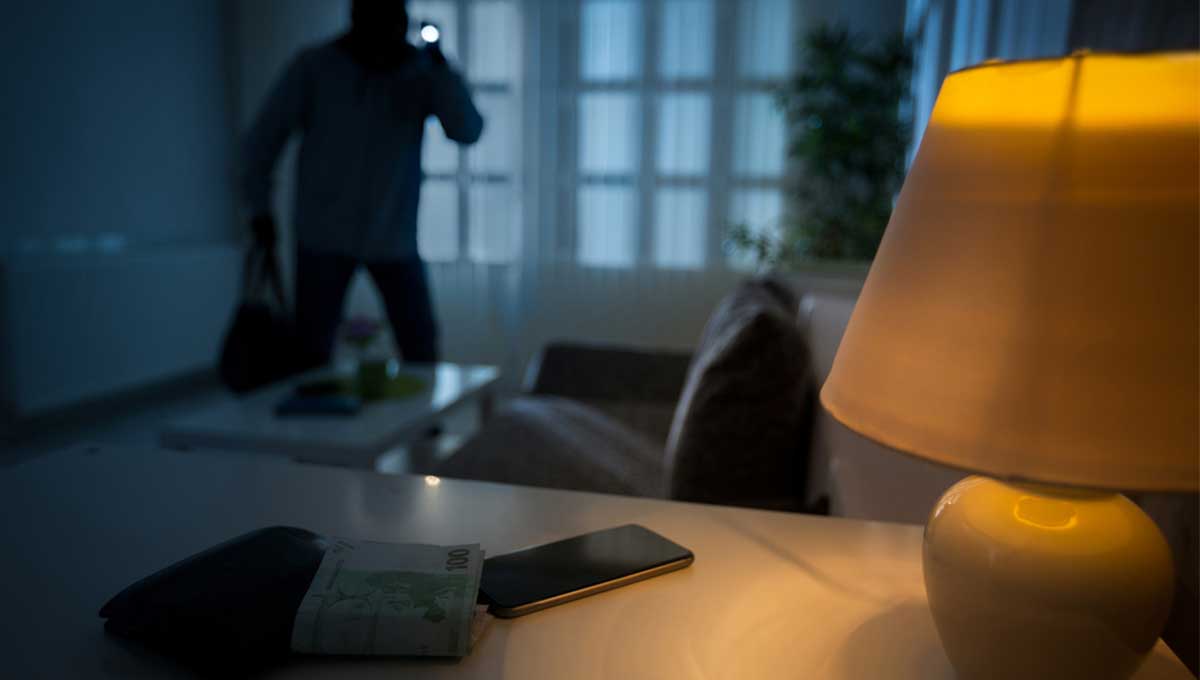You see it in the news, you may hear about it from friends or family, but maybe you thought it would never happen to you. Unfortunately, becoming a victim of a home break-in is an all-too-real possibility that can happen to anyone.
Maybe you forgot to lock your door, or someone slipped inside despite your best efforts and security measures. Whatever the case, it's normal to feel scared and disoriented after a home break-in.
Whether you're trying to pick up the pieces after, or you're preparing and protecting yourself, we can help. Use these tips to keep yourself, your family, and your home safe from criminals.
What to Do if You’re Inside While a Home Break-in Happens
"What if I'm inside while the home break-in occurs?" This is one of the most terrifying thoughts for many homeowners. If this happens to you, follow these steps immediately.
The first and most important step is to leave your home and call 911 for help. If you hear noises and you suspect someone has broken into your home, get out immediately. Use a window if you have to.
Intruders can be dangerous, and getting yourself and your family out should be your top priority. Don't grab your belongings, and don't be a hero. Items can be replaced, but your life cannot.
If you absolutely cannot safely escape the house, barricade yourself in. Interior doors aren't very sturdy, so try to choose an area with the heaviest door you can lock.
Having a weapon or means to protect yourself should be your next thought. Find a baseball bat, a heavy flashlight, or anything that can serve as a weapon.
A robbery or a break-in is considered an emergency, and you should dial 911 as soon as possible, even if you're unsure whether the intruder has stolen anything.
If you're not in the house during the crime, but you notice your house has been robbed or broken into, don't go inside. Make the call from outside the home and wait for the police to arrive.
What to Do While Waiting for Police
First and foremost, you must wait in a safe spot. This can mean finding shelter with a neighbour or getting in your car and locking the doors.
It can take some time for police to arrive, so make sure you're ready to protect yourself if you have to. If you're stuck inside the house and were unable to escape, be ready to fight back. Areas like the neck, eyes, and face are all weak points you can target. Just remember that in Canada, while you have the right to defend your property, you can get in serious trouble for using excessive force. It's always best to avoid any physical altercations, but if not possible, you should seek to restrain and not harm the intruder.
If you see the intruder, try to recall their physical details. Everything from height and gender to their clothing and license plate number can help the police locate the intruders if they flee. Do not engage them if you do not have to—your personal safety is more important.
If the intruders flee before the police arrive, do not disturb the crime scene. Leave everything in place so the police can document the scene and look for fingerprints.
If you notice anything out of place that doesn't belong to you, tell the police. Wait for them to give you the next steps to follow.
The police will ask you questions about roommates, other occupants of the house, and former occupants. Try to have as much information as possible to help expedite the investigation. Talk to the investigating officer to obtain the police report and case number.
What to Do After a Home Break-In
The thought of someone being in your home, a place you considered safe, can have a huge psychological impact. You may feel disoriented, afraid, and stressed. This is a normal reaction; many victims of a break-in feel less safe.
If you've been a victim of a home break-in, take a deep breath and follow these steps.
Taking Inventory
After the police arrive and give the all-clear, you'll need to take inventory. Ideally, you would have had a list of valuables prior to the break-in, but if you didn't, go through the home and note anything you notice missing.
Draw pictures, show any photographs you might have of the item, or describe any special details. For instance, jewelry might have a custom engraving. Electronics have serial numbers.
Any information you have on these valuables increases the chance you can get them back.
Some common items burglars tend to take from homes include expensive or designer clothing and shoes, electronics like phones, laptops, and tablets, jewelry, and cash. Check to see if any of these items are missing, and document them as best you can.
Many people think of their jewelry and electronics first, but burglars also take other objects that they can sell that you may not notice. Make sure to check for these items after a break-in:
- House and car keys
- Prescription drugs
- Artwork and collectibles
- Tax returns
- Credit card information and old bills
Thieves can steal your identity with the information contained on your bills and tax information. Make sure you find out if this information has been stolen so you can take immediate steps to protect yourself from identity theft.
Filling an Insurance Claim
If you have home insurance, you'll need to contact the company. You might be able to recoup some of the loss if you file a claim. Your insurance company needs a police report to file a claim, so make sure you give the police everything they need first.
Make sure to contact your insurance company within 24 hours of the crime. Provide them with as much information as you can so they can process the claim.
You'll probably have to work with a claims adjuster. Ask your insurance company whether you need to take any extra steps or avoid cleaning up, as this can affect the evidence they may find. For the time being, you might want to stay somewhere else, such as in a hotel or with a family member.
Finding Documented Proof
Some of the best-documented proof you can give the authorities and your insurance company is video footage. If you have security cameras in place around your home, this can help identify the intruder as well as show you vulnerable areas of your home.
Keep in mind that looking at footage of the break-in can take a toll, so you'll want to be emotionally prepared before watching it.
Photos of the crime scene are also helpful for the insurance company. Remember not to touch anything before the insurance company can come and assess the situation.
After a Break-In: Additional Considerations
There's a lot to process after a break-in, but it's also key that you work fast to protect your home after the event so you can feel safe again. These additional considerations should put you on the right path toward getting back to normal.
Create a Home Inventory List
A home inventory list helps to prove the value of your possessions. It may seem like a daunting task, but it's not as difficult as you might think.
Go through your home and take inventory of all the expensive items you own, such as jewelry, electronics, artwork, and other valuables. Jot down serial numbers, make and model information, and other important details. Take photos and videos and keep this information on hand in case you need it to make a claim in the future.
If writing it down seems too time-consuming, you can use a home inventory app.
Improve Home Security
It can be tough to feel safe again in your home after a break-in. One of the best ways of preventing home break-ins is to improve your security.
Install security cameras around your home, replace and improve your locks, upgrade your doors and windows to make them more secure, use motion-sensing lights, and consider investing in a home security system.
Not sure where to start? Think like a burglar and take extra steps to show them your house won't make a good target. A visible security camera or home security sign will deter most thieves.
Online Security and Preventing Identity Theft
If the thief took any of your personal information, you'll want to go and contact your bank and credit card companies. Order new cards and checks. Change your online passwords if the burglar stole your laptop or electronics.
Find Therapy
Lastly, you might find it difficult to cope with the emotions and trauma following a home break-in. Seek therapy if you need it. This can help you come to terms with what happened and help you start to feel safe in your home again.
Recovering After a Home Break-In
There's no doubt that a home break-in is a terrifying and upsetting event to have to go through. However, by taking these steps, you can start on the path towards getting back to normal again.
Home or renter's insurance helps protect you in the event of a break-in. At Insurdinary, we want to be your partner in times of need. Find quotes on insurance now and get the best rates in Canada.




